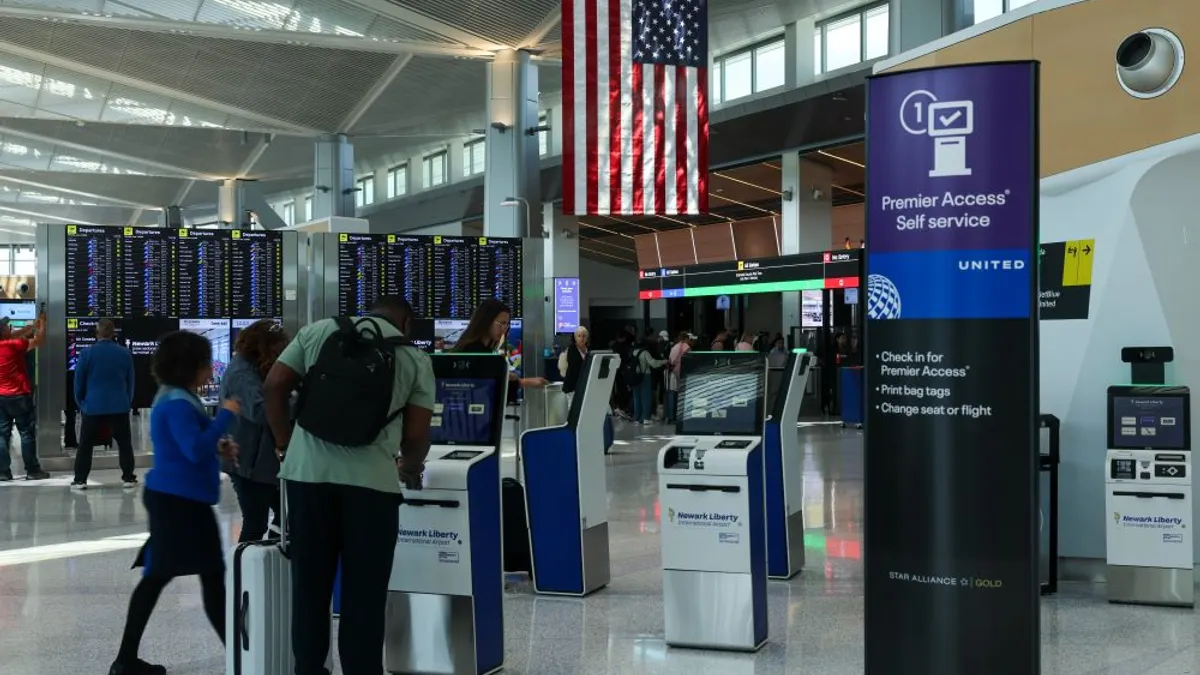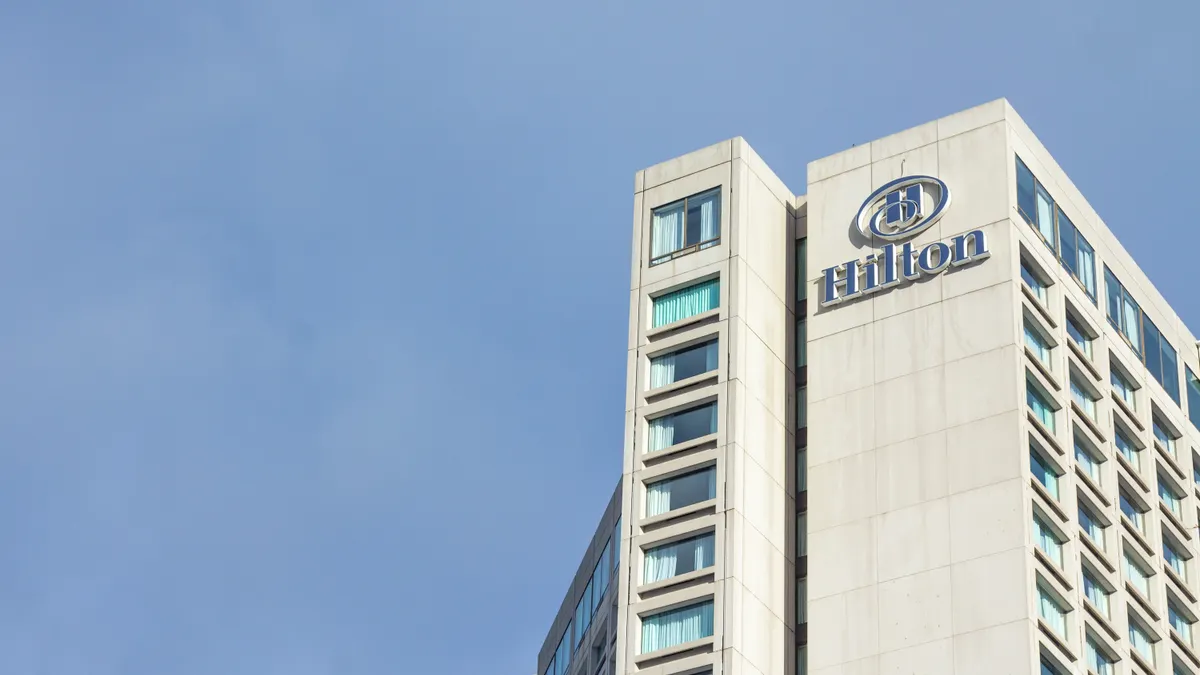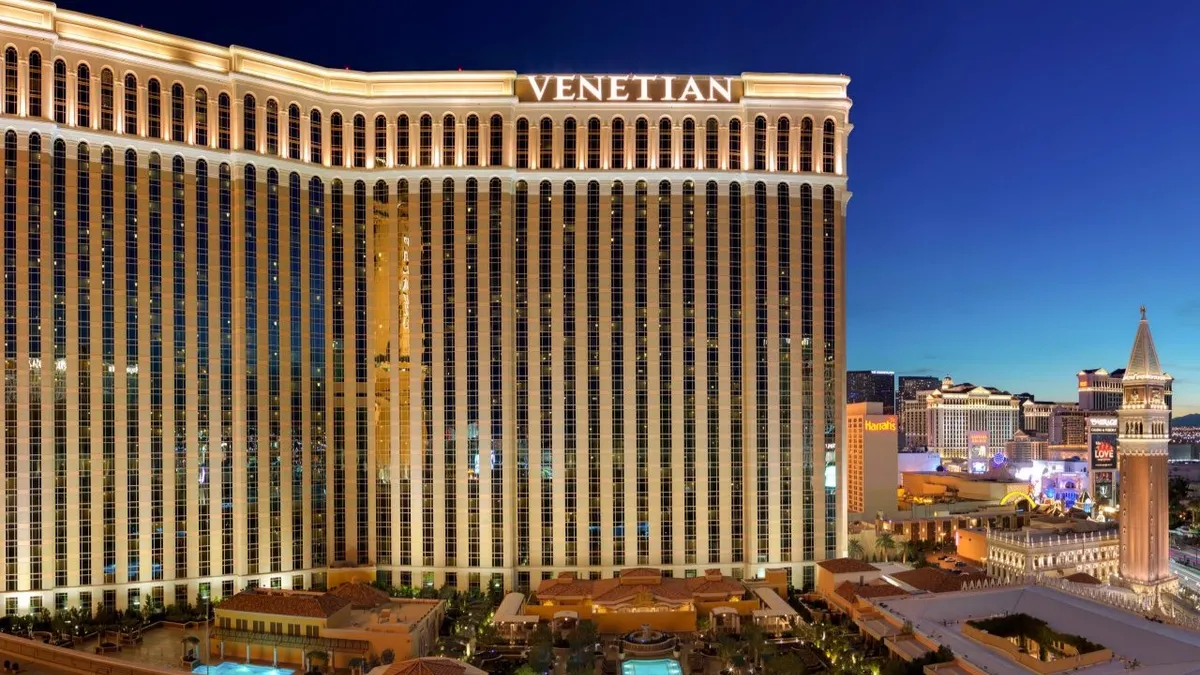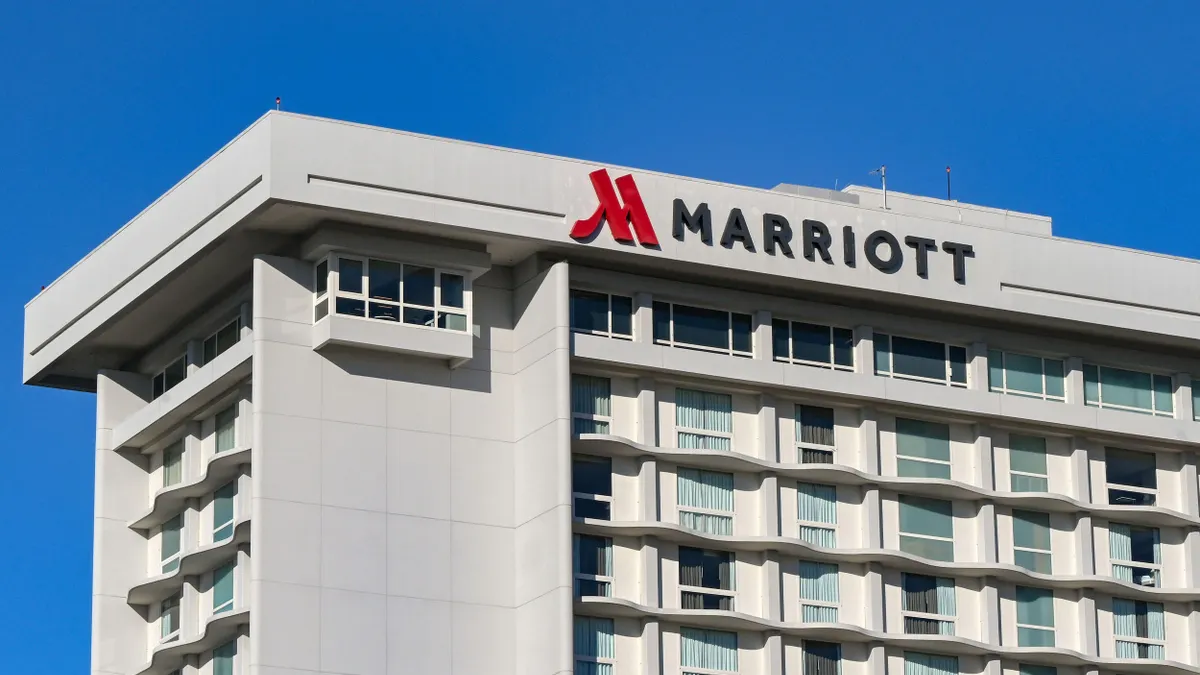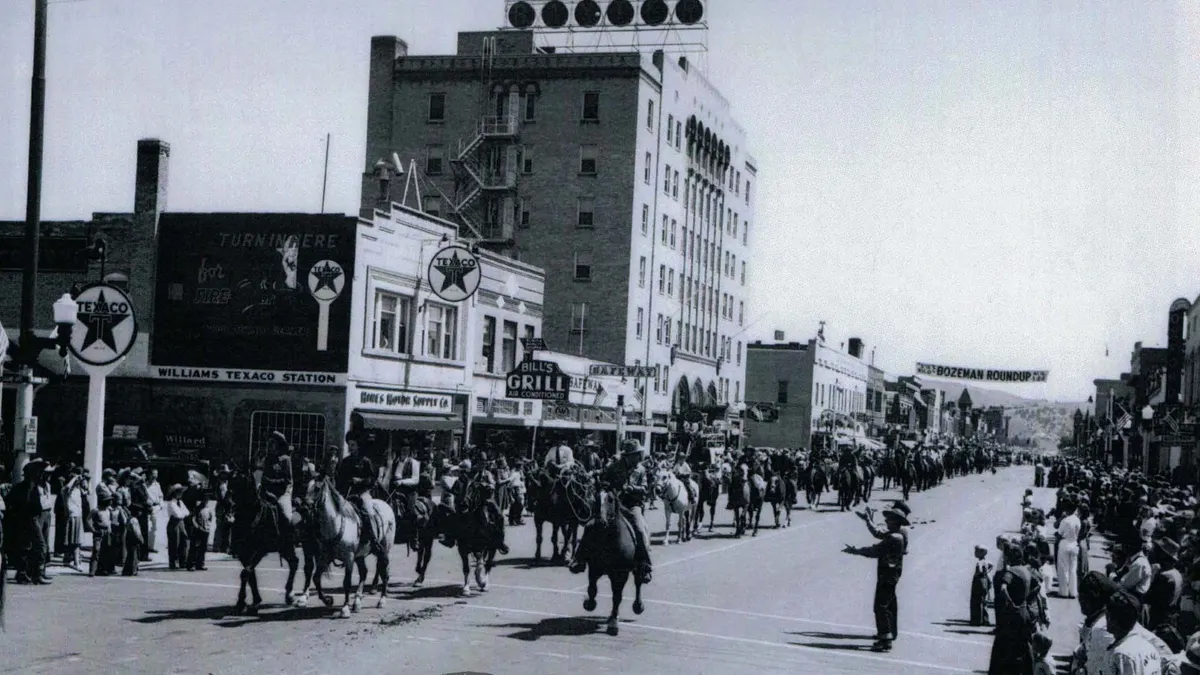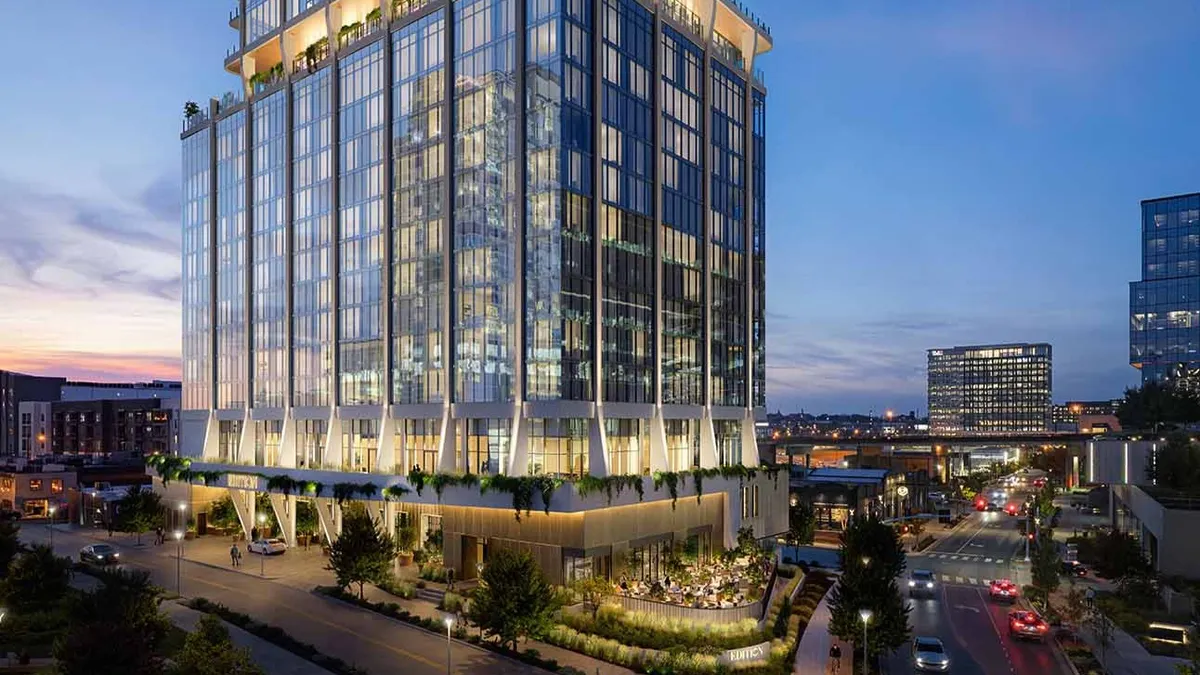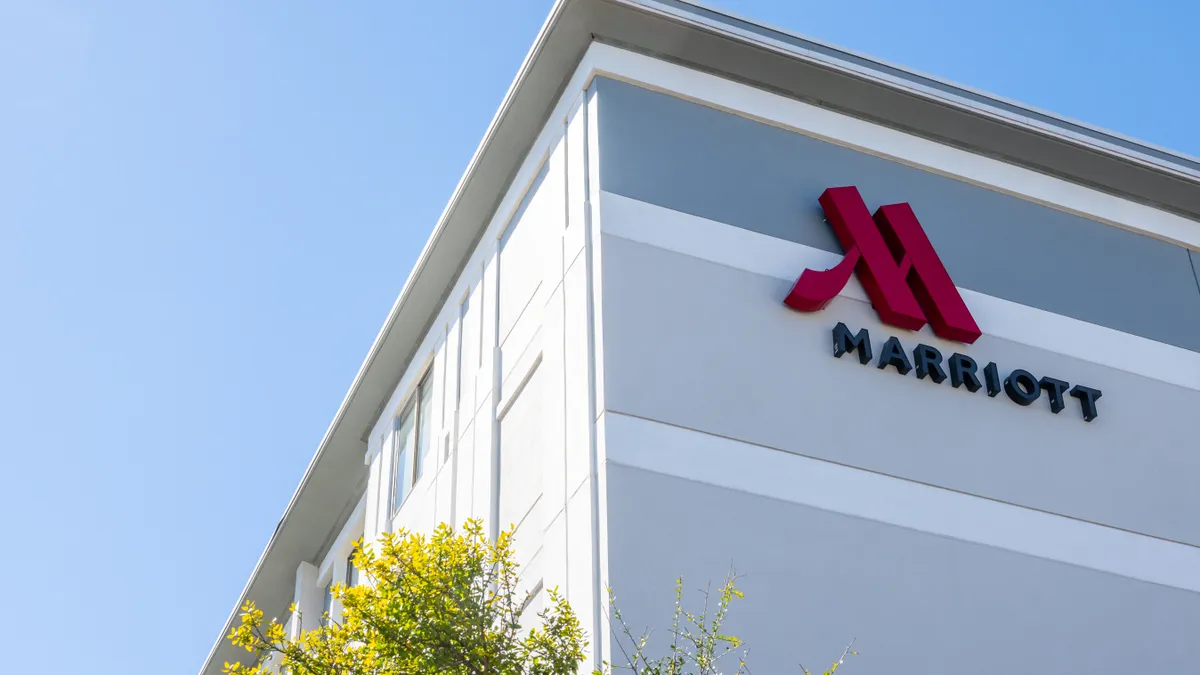The second quarter of 2025 brought U.S. RevPAR declines for several major hotel companies, including Hilton, IHG Hotels & Resorts, Choice Hotels International and Wyndham Hotels & Resorts.
Marriott International, meanwhile, posted flat domestic RevPAR performance for Q2, and Hyatt saw RevPAR drop across its U.S. select service hotels, specifically. Revenue declines were noted in Las Vegas, as well, by Strip operators MGM Resorts and Caesars Entertainment.
Hotel CEOs talked about the less-than-stellar results during Q2 earnings calls that took place over the last several weeks. While some chief executives seemed unusually optimistic given the declines, others pointed to broader macroeconomic concerns that could spell out trouble for the remainder of 2025.
RevPAR takes a hit
Of the hotel companies whose earnings Hotel Dive covered in recent weeks, Wyndham Hotels & Resorts saw the steepest U.S. RevPAR decline in Q2, posting a 4% year-over-year decrease.
Choice Hotels and Hilton, meanwhile, saw domestic RevPAR drop 2.9% and 1.5% year over year, respectively. And IHG reported a 0.9% decrease in U.S. RevPAR in Q2.
At Hyatt’s U.S. select service hotels, its business transient travel RevPAR declined by 1.5% year on year in Q2, though business transient RevPAR was up “in the low single digits” for full-service properties, Hyatt CEO Mark Hoplamazian shared on an earnings call.
In Las Vegas, MGM and Caesars reported that revenues were down 4% and 3.7% year over year, respectively.
Marriott bucked the trend — sort of — posting flat RevPAR performance in the quarter. However, CEO Anthony Capuano said the company now anticipates full-year 2025 RevPAR growth at the low end of its prior guidance.
Wynn Resorts was the only company to see overwhelmingly positive domestic revenue growth in Q2, reporting approximately 1.6% year-over-year revenue gains in its Las Vegas segment.
CEOs weigh in
While some CEOs, including Wyndham’s Geoff Ballotti, pointed to different Easter holiday timing for this year’s Q2 domestic RevPAR declines, others noted that economic uncertainty, tariff concerns and diluted travel demand were to blame for the rocky quarter.
Hilton CEO Chris Nassetta, who said Q2 “turned out to be a bit noisier than expected,” called out a 2% decrease in business travel driven by “government spending declines, weaker international inbound business and broader economic uncertainty.”
Choice’s Patrick Pacious echoed a similar sentiment, saying the two main headwinds causing a softer domestic RevPAR environment industrywide were declines in international inbound and government travel.
In May, the World Travel & Tourism Council reported that the U.S. was on track to lose $12.5 billion in international visitor spending in 2025 following recent government actions, including trade and border detention policy shifts.
Marriott’s Capuano attributed the company’s flat U.S. RevPAR results to a lack of select service demand resulting from reduced government travel and weaker business transient demand.
A July Global Business Travel Association survey found that recent U.S. government actions have soured global business travel buyers, which led a greater number to cancel U.S.-based meetings and seek travel partners outside of the country in the second quarter.
CEOs from both MGM and Caesars noted a decline in Canadian tourists to Las Vegas in the second quarter. Forbes reported this week that the volume of Canadians taking road trips into the U.S. — “the way most Canadians visit” — dropped by 37% year over year in July alone.
Silver linings?
Despite the gloomy economic picture, several hotel CEOs remained optimistic about the future.
IHG’s Maalouf said that while some shorter-term macroeconomic uncertainties remain, many are subsiding. Marriott’s Capuano, meanwhile, noted that the passing of Trump’s One Big Beautiful Bill Act last month has eased some uncertainty, though concerns around tariffs will continue to give hotel owners “some measure of pause.”
Hyatt’s Hoplamazian said that high-end consumers continue to prioritize travel, noting recent encouraging booking trends have left him “optimistic about improving performance in the fourth quarter and into next year.”
Last week, though, CoStar and Tourism Economics further downgraded their U.S. hotel growth forecast for 2025. The firms now anticipate U.S. RevPAR will drop 0.1% year over year for the full year.
“We expect little change in the economic outlook over the next 18 months, but we are optimistic that once trade talks have concluded and the impact of the budget reconciliation bill comes to fruition, hotel performance will recover,” Amanda Hite, president of CoStar-owned STR, said in a statement.


